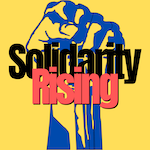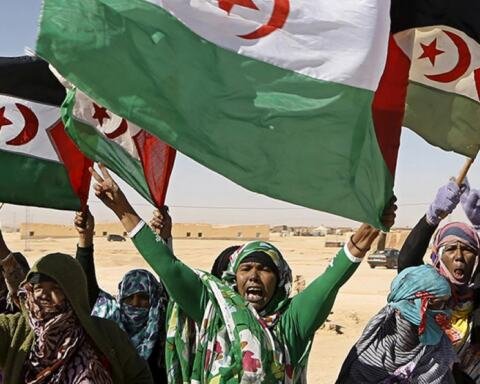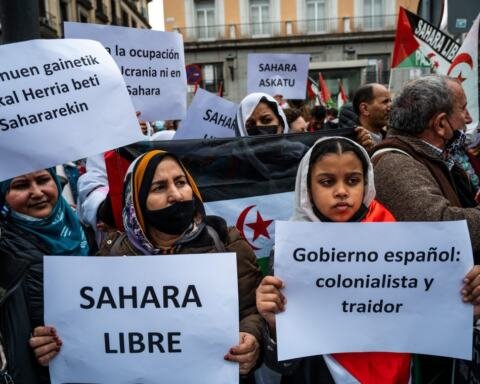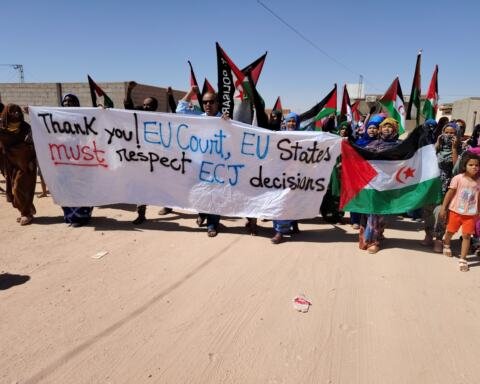Through their roles in the current liberation struggle of the Sahrawis of Western Sahara, Sahrawi women have substantially increased their traditional participation and importance in that society. Since 1973 the Sahrawis, the indigenous peoples of the former Spanish Sahara in northwest Africa, have engaged in an armed struggle to free that territory: first from Spain, which “protected” and administered it in part or in whole from the Franco-Spanish Conventions of 1904 until 1976; then from Morocco and Mauritania, to which Spain transferred its administrative powers by the Madrid Accords of 1975 (the transfer took effect in February 1976 when Spain withdrew); and since 1979, following a peace treaty between Mauritania and the Polisario Front, against Morocco alone.
The territory has been marked for decolonization by the United Nations Decolonization Committee since 1963, and in 1988 the United Nations drew up an implementation plan (approved by both parties in 1990) for a negotiated settlement of the territorial conflict through a free and fair referendum for the Sahrawis.
Full article
Sahrawi-Women-in-the-Liberation-Struggle-of-the-Sahrawi-PeopleSource: JSTOR
Support our work
Support our work
Support our work with a one-off or monthly donation
AuthorAnne Lippert Year1992Pages17LanguageEnglish
Share via
Related resources
The Western Sahara Dispute: A Cautionary Tale for Peacebuilders
The UN and MINURSO have succeeded neither inconducting a referendum nor in…
Western Sahara as a Hybrid of a Parastate and a State-in-Exile: (Extra)territoriality and the Small Print of Sovereignty in a Context of Frozen Conflict
Within the liminal universe of parastates, what makes Western Sahara/SADR…
The Front Polisario Verdict and the Gap Between the EU’s Trade Treatment of Western Sahara and Its Treatment of the Occupied Palestinian Territories
Morocco’s control over Western Sahara and Israel’s control of the West Bank…



